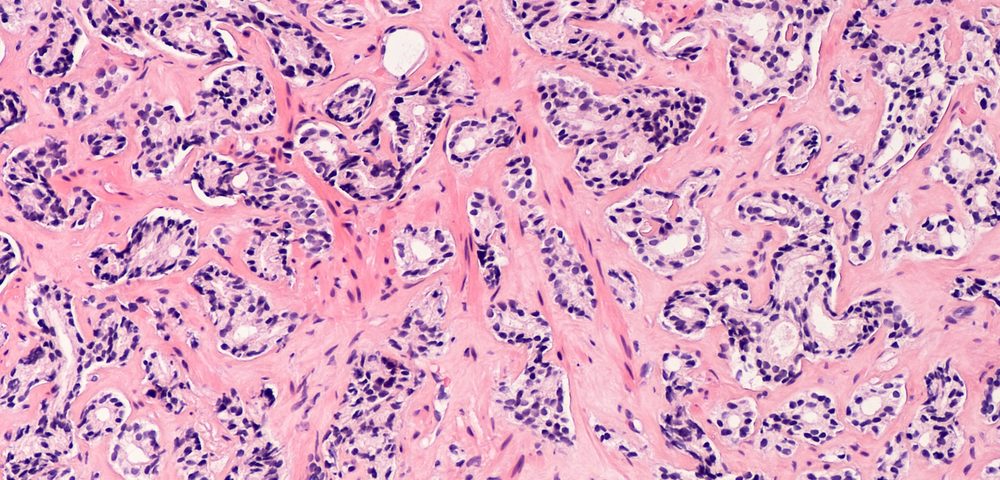After my urologist felt “a suspicious lump” and scheduled me for a prostate biopsy, anxiety and fear became my constant companions. There were two primary sources of my fear. The first involved my fear of the procedure. The second involved the fear of receiving my biopsy results.
Knowing next to nothing about a prostate biopsy, I did what is second nature when needing information. I went online and searched “preparing for a prostate biopsy,” and received more than 150,000 Google hits. My eyes glazed over. The amount of information was overwhelming.
I allowed my fears to determine the questions that needed answers. I’ve come to believe that anyone who is told they need a prostate biopsy should receive a list of Frequently Asked Questions. Here’s my list of questions; hopefully, the answers will reduce your fears as it did mine.
How is a prostate biopsy performed? A transrectal biopsy is the most common method used. A thin needle is inserted through the rectum, into the prostate. Several thin cylindrical “cores” of prostate tissue are removed and examined for prostate cancer.
Is the procedure painful? The experience of pain is highly subjective. You should know if or how your urologist plans to reduce your pain. If you’re told there’s no need to reduce the pain, it’s my suggestion you insist on pain relief. With pain relief, I’d say my pain level was at six on a scale with 10 being the most painful. Thankfully, the test doesn’t take very long.
What are the ways to reduce the pain? My urologist injected lidocaine, which is a numbing drug, into my prostate to reduce the pain. The good news is the injection worked. The bad news is the injection to reduce your pain is mildly painful.
What are the risks of a prostate biopsy? You’ll receive and sign a form detailing the risks of a biopsy. The most common risks cited are bleeding at the biopsy site, rectal bleeding, or infection. You may see blood in your urine. Your semen may be blood-colored for a week or so. Temporary impotence is not listed as a risk, but I was in the minority of men who experienced temporary impotence, lasting approximately two weeks, after my biopsy.
Can a prostate biopsy rule out cancer? Yes, but a negative biopsy is not necessarily a guarantee of being cancer-free. According to researchers at the Oregon Health and Science University Cancer Center, up to 25 percent of prostate biopsies give a false negative.
What do I need to know in order to understand my biopsy result? Your Gleason score is a measure of how aggressive your tumor is likely to be. It is made by a pathologist looking at the cancer under the microscope.
Receiving the answers to your questions and concerns before your biopsy is the best way to prepare and reduce your fears about this procedure.
Note:Prostate Cancer News Today is strictly a news and information website about the disease. It does not provide medical advice, diagnosis, or treatment. This content is not intended to be a substitute for professional medical advice, diagnosis, or treatment. Always seek the advice of your physician or other qualified health provider with any questions you may have regarding a medical condition. Never disregard professional medical advice or delay in seeking it because of something you have read on this website. The opinions expressed in this column are not those of Prostate Cancer News Today, or its parent company, BioNews Services, and are intended to spark discussion about issues pertaining to prostate cancer.


I had my first prostate biopsy 8 years ago and it was one of the most painful experiences of my life. Fortunately, the result were negative but after 8 years of active surveillance, it became time to have another biopsy. I was really dreading this.
My 2nd biopsy was performed by a urologist that had been recommended by one of the top prostate surgeons in the northeast. This experience was totally different. The lidocaine injection was nearly painless (maybe 1 or 2 on scale of 0 – 10) and the actual biopsy of 13 samples was absolutely painless. It was really a 0.
My point is that the biopsy does not have to be painful if performed by an experienced and skillful urologist. As with any life-threatening condition I feel that it is imperative to seek out the most highly qualified doctors you can find, not your local physician (unless he falls into the world class category). Even if it means traveling some distance, it is worth it. Your life and certainly your long-term quality of life both depend on it.
Thank you for that Tom. I go for my first this Thursday. And, it will be done by one of the top specialists in the field regionally. Again, many thanks.
Absolutely agree. I had spoken to several men who had painful experiences and was scared to death. After some research I found a great urologist and had a similar experience to your own. Lidocaine eased the procedure and made it easy to go through – Dennis …TheProstateCancerCoach
I appreciate your comment on how you should check how your urologist intends to reduce pain during your prostate surgery. It would seem important to know what kind of anesthetic they will use and what the procedure will be. My husband needs prostate surgery so we’ll have to find out about the anesthetic as well as the procedure itself.
I hope all goes well for your husband. This must be a stressful time. Check out my website whereisyourprostate.com for information about surgery.